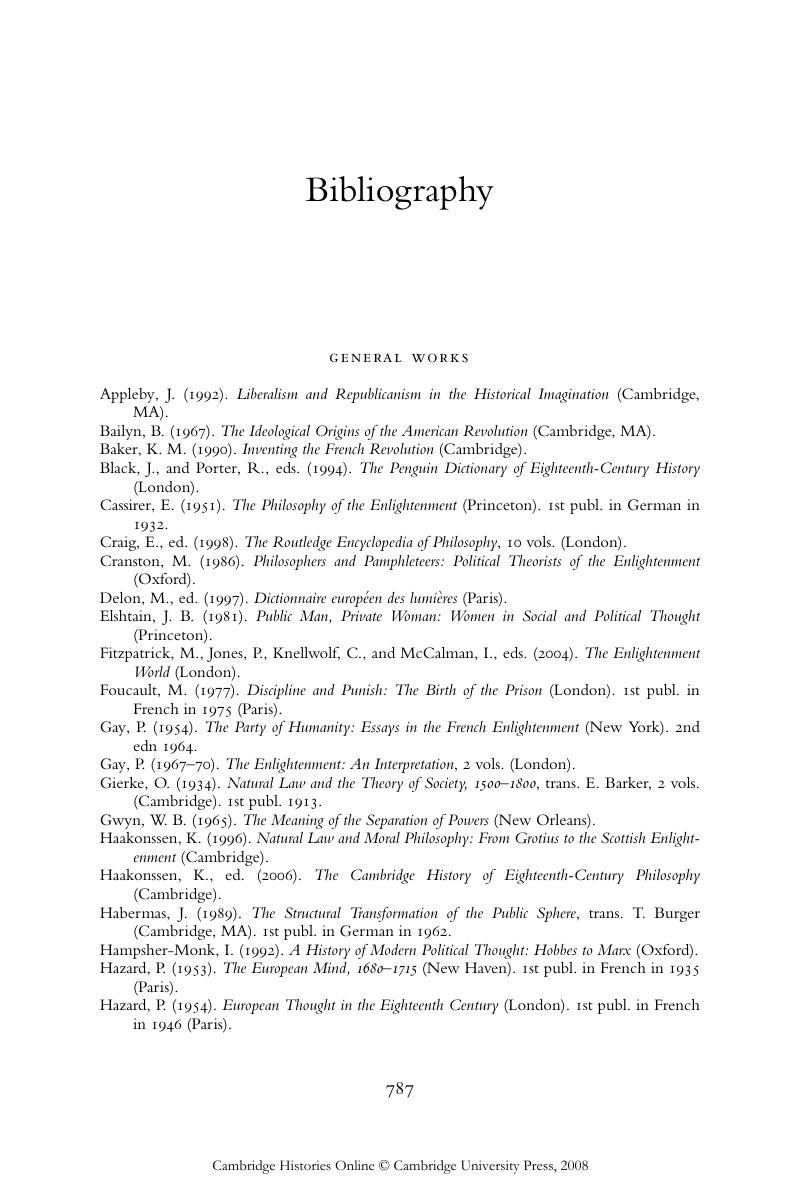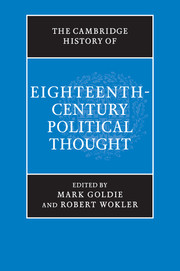Book contents
- Frontmatter
- Introduction
- Part I The ancien régime and its critics
- Part II The new light of reason
- Part III Natural jurisprudence and the science of legislation
- Part IV Commerce, luxury, and political economy
- Part V The promotion of public happiness
- Part VI The Enlightenment and revolution
- Biographies
- Bibliography
- Index
- References
Bibliography
Published online by Cambridge University Press: 28 March 2008
- Frontmatter
- Introduction
- Part I The ancien régime and its critics
- Part II The new light of reason
- Part III Natural jurisprudence and the science of legislation
- Part IV Commerce, luxury, and political economy
- Part V The promotion of public happiness
- Part VI The Enlightenment and revolution
- Biographies
- Bibliography
- Index
- References
Summary

- Type
- Chapter
- Information
- The Cambridge History of Eighteenth-Century Political Thought , pp. 787 - 900Publisher: Cambridge University PressPrint publication year: 2006



